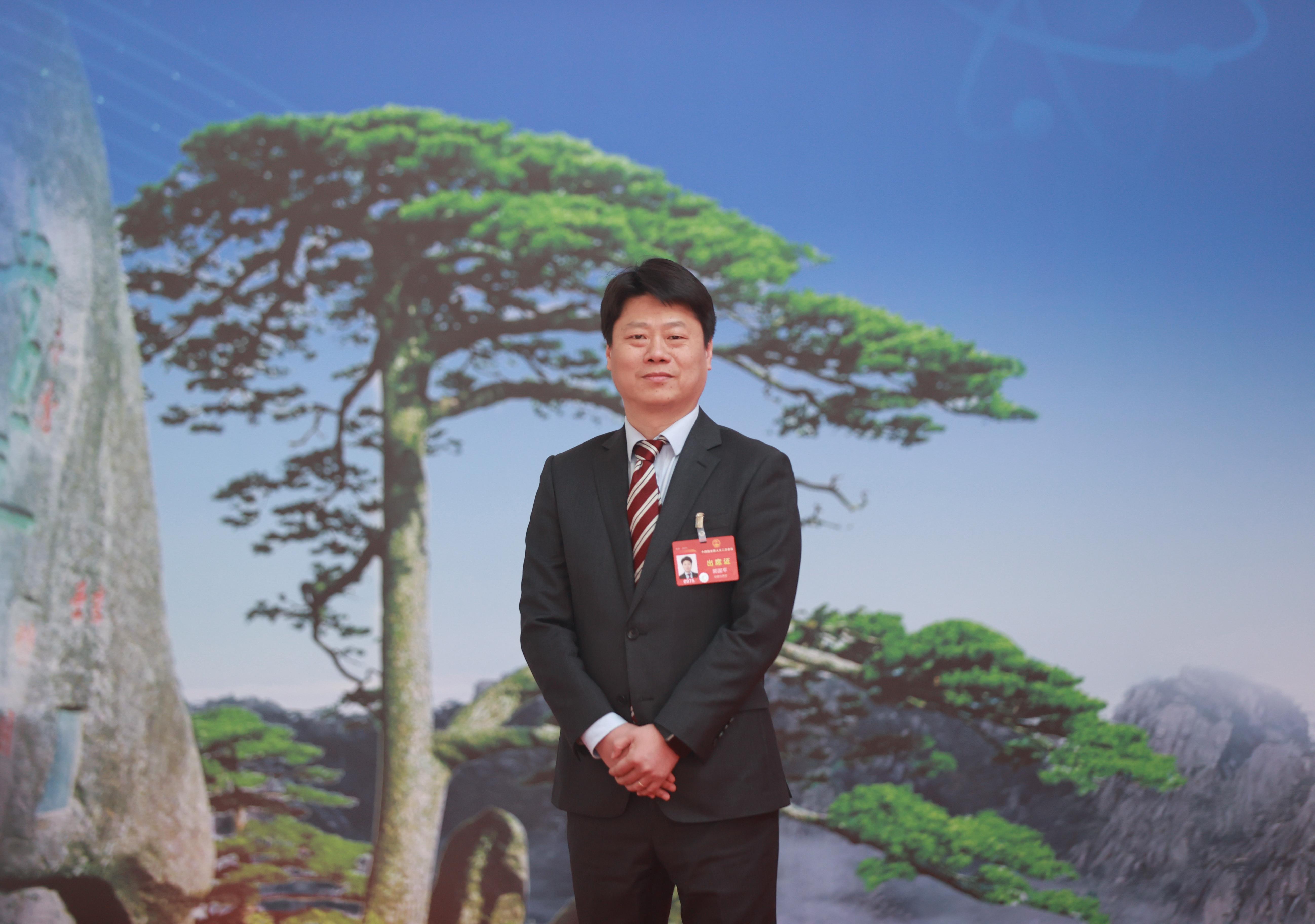
 0 Comment(s)
0 Comment(s) Print
Print E-mail China.org.cn, March 11, 2024
E-mail China.org.cn, March 11, 2024

Guo Guoping, deputy director at the Key Laboratory of Quantum Information under the Chinese Academy of Sciences. [Photo provided to China.org.cn]
Regarded as one of the most promising state-of-the-art technologies of the 21st century, quantum technology, especially quantum computing, is expected to cultivate new quality productive forces and elevate China's position in the global technology sector, according to a leading quantum physicist.
Guo Guoping, deputy director at the Key Laboratory of Quantum Information under the Chinese Academy of Sciences, highlighted that quantum computing could lead to breakthroughs in traditional computing and applications across various industry sectors, thereby enhancing production efficiency, creating value, and propelling economic development.
During China's "two sessions" this year, Guo, also a deputy to the 14th National People's Congress, called for strategic national planning, increased financial investment, and the nurturing of talent to advance the development of the quantum tech sector.
Origin Wukong, China's independently developed third-generation superconducting quantum computer, created by Origin Quantum Computing Technology (Hefei) Co., Ltd. in Anhui province, launched and became available to global users on Jan. 6.
By March 4, this pioneering quantum machine, powered by a 72-qubit indigenous superconducting quantum chip, had attracted over 2.77 million engagements from 104 countries and regions, executing more than 165,000 diverse quantum computing tasks. According to researchers, the top visitors were from the United States, Canada and Russia.
"This significant global engagement marks a milestone for China's quantum computing industry, signaling the operational maturity of our superconducting quantum computer industry chain in Anhui and heralding China's entry into the age of accessible quantum computing power," remarked Guo, chief scientist and co-founder of Origin Quantum Computing Technology.
The company also joined forces with the Shanghai Supercomputing Center to pioneer the establishment of a co-innovation center in the Yangtze River Delta region last year. This initiative is designed to harness the combined strengths of quantum computing and supercomputing to meet the region's computational needs and drive technological innovation.
With the global race in quantum computing heating up, quantum technology is set to significantly enhance computational speeds and capabilities, Guo said.
He said that quantum computing would revolutionize sectors like pharmaceuticals, supply chain management, and the Internet of Things, underpinning high-quality industry development and positioning China at the forefront of the next technological and industrial transformation.
Looking ahead, Guo predicted a new era where quantum computing, supercomputing, and artificial intelligence converge. He likened conventional computers to "rifles," AI-powered computing systems to "cannons," and quantum computers to "missiles." According to him, the integrated power of these technologies will create unparalleled computational capabilities in the future.